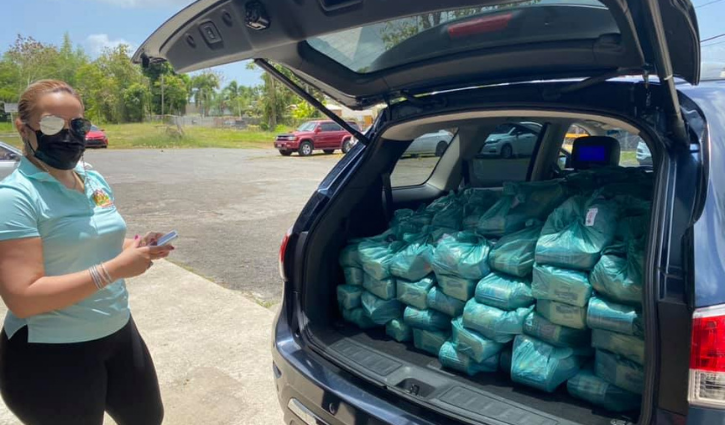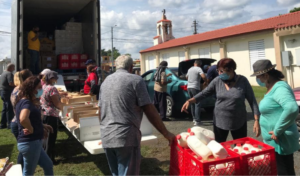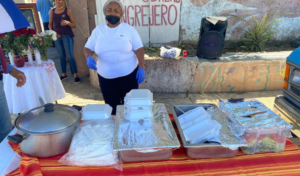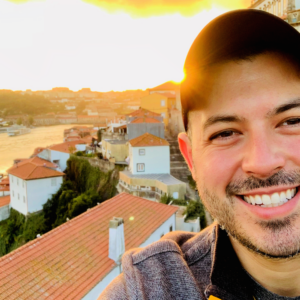Rebuilding a Stronger Puerto Rico 🇵🇷

By Angel Venegas
Puerto Rico has endured the compounded effects of multiple disasters over the last four years: the overwhelming impacts of Hurricanes Irma and Maria in 2017 that decimated the island’s energy grid, recurrent seismic activity in the southwest region that included a 6.4 earthquake in early 2020, followed by the current COVID-19 pandemic—all further aggravating Puerto Rico’s pre-existent widespread poverty, unemployment and debt crisis.
Although the island has experienced much destruction and devastation in a relatively short amount of time, there have also been many opportunities generated for the development of a stronger Puerto Rico and diaspora. It’s in these opportunities for community-building, such as educational workshops, that our long-term recovery partner, the Episcopal Diocese of Puerto Rico, shines as a beacon on a hill in guiding the most disadvantaged to live in a more resilient way.

As a program officer for long-term disaster recovery in the US and Latin America, it’s a privilege for me to share my thoughts about how the diocese’s disaster response team, Programa REDES, continues to faithfully lead collective efforts to bring hope and comfort to the most vulnerable amid so many disasters. During the pandemic, I have been working remotely from my family home in Quito, Ecuador, and being geographically and socio-culturally closer to Programa REDES has allowed me to be fully immersed in the context in which they work and to understand the complexities of the work they do, including sexism and classism.In a recent conversation, the Reverend Ana Méndez, Director of Programa REDES, told me her team is facing issues tied to systematic machismo, inequality and discrimination when helping disaster-stricken communities. While these unfavorable societal behaviors existed on the island much before Hurricanes Irma and Maria, Reverend Ana has observed an increased division between those that have power and status and those that don’t have as much with every disaster.
For example, during COVID-19 vaccine events, people who are documented have been fighting for access to the vaccine and trying to skip long lines by arguing that they deserve it more than people who are undocumented. Similarly, at food distribution events, many in line to receive food packages will tell others just arriving that there is no more food or that if they aren’t from the neighborhood where the event is being held then they aren’t eligible to receive a package—information that goes against Programa REDES’ mission to serve all people regardless of where they come from. The team combats this by announcing their distribution events well in advance and clearly indicating that all are welcome to participate.

This scarcity mindset stems from the fact that Latin America has been hit extremely hard by the pandemic and that every two weeks in Puerto Rico, executive orders are issued that effect which government services are offered and how commerce is conducted, as well as how much medical supply there will be and which medical services will be available throughout the island.
As a Latino, my heart aches to hear about the social divisions that seem to grow with every passing disaster in Puerto Rico. However, with every exchange shared between the Programa REDES team and myself, we both give each other strength to seguir (continue) demonstrating to the world the power that exists among God’s children in collectively taking advantage of existing and future opportunities in caring for each other.
Lee esta historia en español.
 |
Angel Venegas is a program officer, US Disaster Programs at Episcopal Relief & Development. |


